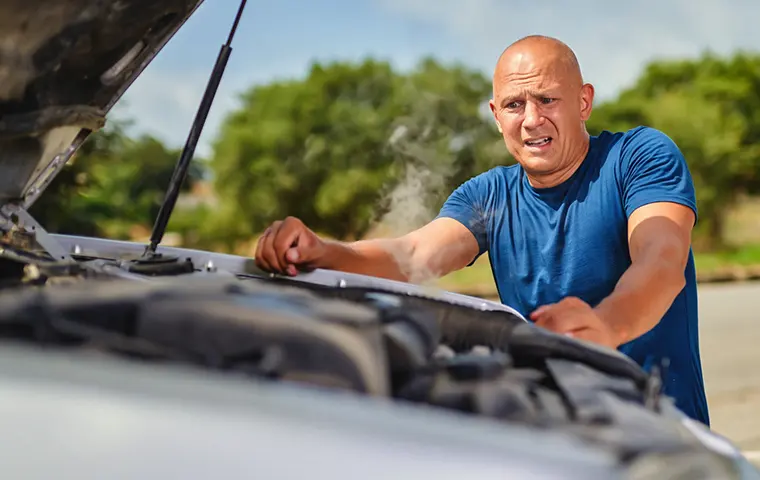Those hot summer months are on their way, and there’s one vehicle issue that every truck driver dreads: overheating. Being stuck on the side of the road is disastrous. When it happens in the summer, it’s downright dangerous. Overheating doesn't need to be a summer inevitability. You can prevent it by taking the proper precautions. Let’s discuss how you can avoid overheating this summer.
What Causes Overheating?
Before we can prevent the problem, we need to know what could be causing it. Let’s quickly review seven reasons your engine might suffer in the summer sun.
- Low Coolant Level: Antifreeze regulates your engine’s temperature. If you don’t have enough of it, your engine might overheat.
- Coolant Leaks: Your cooling system contains the radiator, hoses, water pump, and engine block. A leak can occur anywhere in this system, preventing coolant from circulating properly.
- Thermostat Malfunction: The thermostat doesn’t just tell you the temperature. It regulates how the coolant flows within the engine. If it’s not working correctly, it can make the engine overheat.
- Broken or Loose Belts: The engine’s belts power various cooling system components. A damaged or loose belt can cause the water pump to stop circulating coolant and cause overheating.
- Clogged Radiator: The radiator dissipates heat generated by the engine. Debris and dirt can reduce the radiator’s ability to cool the engine.
- Cooling Fan Malfunction: The fan circulates air through the radiator and cools the engine. If the fan stops working, the engine can overheat.
- Blown Head Gasket: The head gasket is a seal between the engine block and cylinder head that prevents coolant and oil from mixing. Its failure can cause coolant to leak into the engine’s combustion chamber.
5 Items to Focus On In Your Maintenance Checklist
Now we know what causes overheating. This understanding helps us determine where to focus our preventative maintenance efforts. Make sure these items are on your maintenance checklist this summer.
- Coolant Levels: Make sure your radiator has plenty of antifreeze.
- New Coolant: Coolant doesn’t last forever. Make sure you replace it every two years or 20,000 miles.
- Radiator Cap: Your radiator cap should be free of cracks and screwed on tight. You want to maintain pressure within the radiator so it doesn’t boil.
- Radiator Cleanliness: Make sure your radiator doesn’t get clogged by cleaning it often.
- Thermostat, Belts, Hoses, Water Pump, and Fans: These are all components of your cooling system that your engine relies on.
Signs of Overheating
Unfortunately, sometimes vehicles overheat despite your best efforts. Here’s what to look for if you’re out on the road.
- Steam or smoke emitting from the engine compartment
- Temperature needle spiking to red or H
- If a sweet smell comes from the engine, there’s a coolant leak
- If a burnt smell comes from the engine, there’s an oil leak
- Temperature or check engine lights light up
What to Do if Your Vehicle Overheats
If your vehicle overheats, the first thing you should do is pull over. If you need to keep driving for the time being, there are some steps you can take. First, you can turn off the air conditioning to reduce stress on the engine. Then, crank up the heater to pull heat out of the engine. Drive at a steady speed and open all the windows to increase airflow.
Once you can to pull over, turn off the vehicle and call for assistance. In the meantime, here are some steps you can take:
- Open the engine compartment once it cools down.
- Check the coolant level. You can refill it if it is low.
- Inspect the radiator for any blockages.
- Check the engine oil level and refill if you have engine oil with you.
Azuga Helps You Keep Up with Vehicle Maintenance
You’ve gathered by now that regular vehicle maintenance is the best way to prevent overheating. This applies all year– not just during the summer. Azuga’s maintenance alerts help you prioritize your vehicles’ maintenance needs. We’ll track your vehicle health and tell you when your vehicles need repairs. Not only that, but we’ll also tell you when it’s time for routine maintenance. Azuga’s system also makes it easy to store records of all previous maintenance performed on your vehicles. Try a demo of our software today and see how we can improve your maintenance process.








